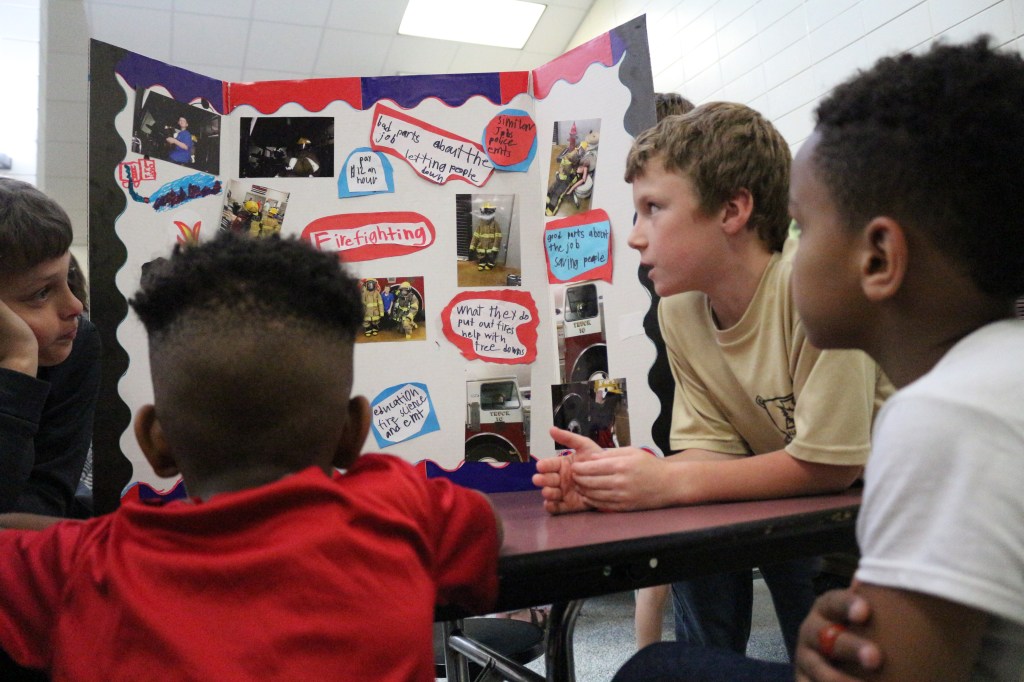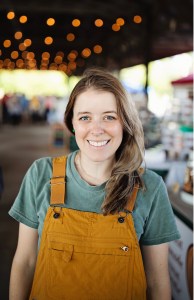Reciprocation education: Students learn to teach from each other
Published 6:30 am Friday, April 12, 2019

- Students from FAME Academy at Brookhill Elementary School and a mentor from the Limestone Career Technical Center help students in kindergarten through second grade learn about the many career offerings at the tech school during a career fair at Brookhill.
As most teachers know, the only way to teach is to roll up your sleeves and do it.
That’s what students at two Limestone County schools learned over the past two weeks.
Trending
Third-graders at FAME Academy at Brookhill Elementary School in Athens and 16 to 18 students from the Limestone County Career Technical Center taught FAME students about what the tech school has to offer and helped them host a career fair with what they learned. Because FAME is an fine arts school, students also learned about the knowledge and composure necessary to teach a group of younger students.
Last Friday, third-graders under the watch of school counselor Susan Wales went to the tech center to learn about the many career options the school has to offer, from welding to heath sciences to culinary arts and law enforcement.
While they were there, they learned from students hoping to become teachers themselves someday. On Monday, those same tech center students — under the leadership of counselor Julie Meals and the direction of education teacher Tara Ellis — came to FAME Academy to help the third-graders build trifold career boards about particular career areas. They used photos and words to show what it takes to make it in that particular career, the expected pay range, educational requirements, advantages and disadvantages, among other points.
The lunch room of the school was abuzz with chatter while the career fair commenced Wednesday. Small groups of FAME students stopped at each career board to learn about particular career areas like welding, electrical, firefighting or graphic arts. With the older Career Tech students as their mentors, FAME third-graders managed to maintain the interest of the younger students as they reviewed requirements of various fields. After a few minutes, each group moved to another board to learn about another career.
Eleventh-grader Ryan White, 16, said he learned to be “a little more patient” during the process.
“They did a lot of it themselves,” White said. “They wrote down the information they needed. I took photos and talked them through. I learned I need to break things down more.”
Trending
White, who is 16, hopes to someday teach middle- or high-school students.
Like the Career Tech students, the third-graders also got a taste of how difficult it is to teach. They took notes about their subject and learned how to edit notes so their kindergarten through second-grade audience could understand them. They also learned how to get up in front of their peers to deliver a lesson.
Eva Hays McClary, a third-grader who studied culinary arts, learned there are various jobs within the field.
“I learned that you have to wash your hands before you have to cook. I learned that one of the good things is that you get to eat the food after you make it but one of the bad things is you have to clean up your mess afterward.”
Blake Dodds, a third-grader who studied welding, said he learned welding is taking a “hot, bright torch to attached two pieces of metal together.”
“You have to wear a mask,” Dodds said. “It’s brighter than the sun during a solar eclipse, so it’s really important to have that. Some use a dangerous one (torch), so they have to wear a rubber suit.”
Like other third-graders in his group, he learned the pros and cons of a welding career.
“One bad thing is if you are welding without a rubber suit, it is so hot it can burn your skin off. The good part is that if you travel, you can make a lot of money, probably $90,000 to $100,000 a year.”
Lexie Thornton, who studied health care, said she learned when a person is active and moving a lot, their heart gets stronger.
“I learned that you have a pulse in your wrist and in your neck,” she said.
“I learned that you get good money — $70,000 a year,” she added.
She learned one of the downsides to health care is some people cannot be fixed, and when that happens, it makes you feel bad, she said.
Wales was quite pleased with how the project turned out.
“It gave the Career Tech students real-world practical experience with students younger than they are, and our students got teenage mentors to help them out. They learned from each other.”






